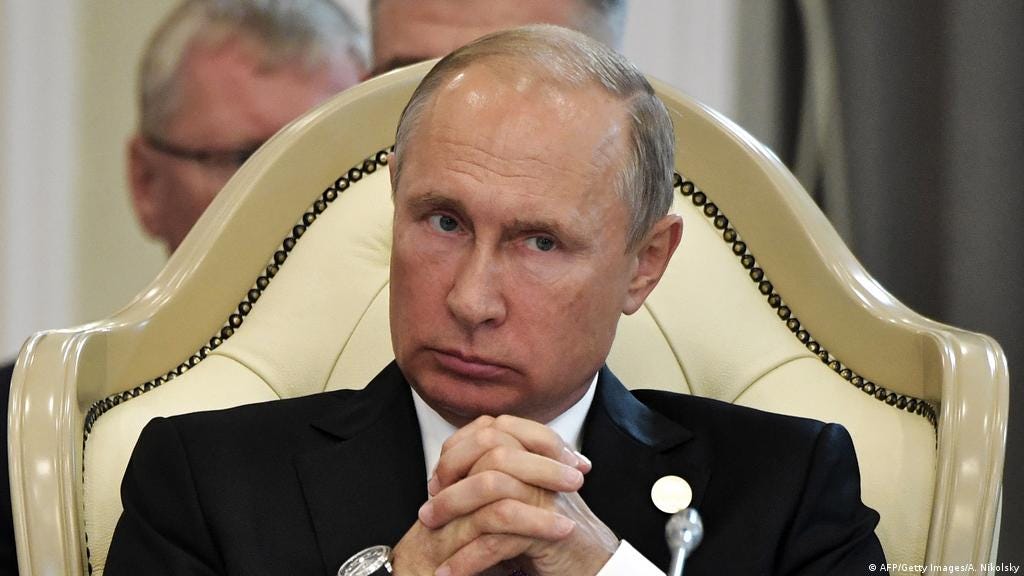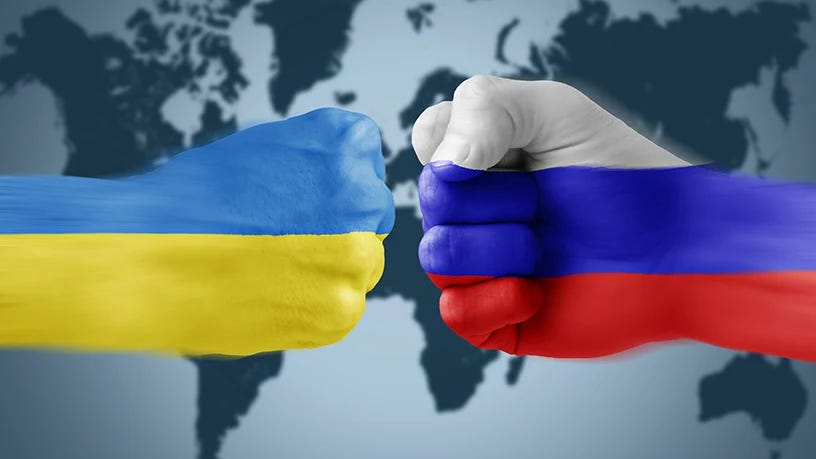300+ firms suspend service in Russia
Since Vladimir Putin’s invasion of Ukraine began on February 24, more than 340 companies have announced complete or partial withdrawals from Russia.
Hello and Welcome to
Rise & Shine☀ - Sunday Special,
Every Sunday, an email will arrive in your inbox detailing a specific topic to help you understand it better.
Let’s get started
Since Vladimir Putin’s invasion of Ukraine began on February 24, more than 340 companies have announced complete or partial withdrawals from Russia, including most of the world’s biggest technology firms.
The majority – though not all – of the tech firms’ restrictions were in protest against the invasion. Some, like TikTok’s ban on live streaming, came in response to Russia’s recently implemented “fake news” law, which threatens long jail terms for anyone spreading misinformation about the armed forces.
Here’s a list of major tech firms that have halted or restricted their operations in Russia so far.
Hardware
Chip giants: Taiwan's TSMC, the world’s biggest semiconductor company, has halted chip sales to Russia, as have Intel and AMD.
Samsung: The leading smartphone seller in Russia suspended the export of all its products to the country on March 4. Samsung accounts for more than 30% of smartphones sold in Russia, but the move also cuts Russians off from everything else it makes, from chips to home appliances.
Apple: On March 1, Apple said it stopped all exports to Russia. The company said it would “continue to evaluate the situation” and was communicating with the governments of affected countries. The move came after Ukrainian’s Vice Prime Minister Mykhailo Fedorov published an open letter to Apple, asking it to cut Russia off from its products and services.
Other major hardwide firms that have halted product sales in Russia include HP, IBM, Siemens and Ericsson.
Media and entertainment
Google: The company has removed RT and other Russian state-funded media from its news platform and has also halted their ability to monetise through Google Ads. Google Pay has blocked several Russian financial institutions from its network. YouTube has also barred Russian state media from monetising through ads.
Meta: Facebook’s parent firm has restricted access to Russian state media within the EU and barred them from running ads or monetising on its platforms.
Facebook also said on Friday it has temporarily eased its rules regarding violent speech to allow statements like "death to Russian invaders," but not credible threats against civilians. Russia has opened a criminal case against Meta in response, seeking to designate it as an “extremist organisation” and ban it in the country.
Twitter: The social media network has paused ads in Russia and Ukraine. It has also launched on the dark web to get around restrictions imposed by Russia.
Apple: Apart from pausing product sales in Russia, the company has limited access to Apple Pay and restricted the availability of Russian state media apps outside Russia.
It has also disabled traffic and live incidents in Ukraine on Apple Maps.
TikTok: The short video app has restricted access to Russian state media in the EU. It has also suspended livestreaming and content uploads from Russia in response to the country’s recently introduced “fake news” law.
Netflix: The company initially refused to air Russian state TV channels before suspending its service entirely in Russia.
Gaming firms Electronic Arts, Epic Games, Nintendo and Activision have all halted sales in Russia.
Payments and financial services
MasterCard, Visa, American Express: All three payment giants have said they will suspend operations in Russia. That means cards issued by Russian banks can no longer be used to make purchases outside the county, and cards issued elsewhere can’t be used in Russia.
PayPal: The online payments firm also paused its service in Russia earlier this week.
Crypto: Unlike payment companies, crypto exchanges have rejected calls to cut off all Russian users, saying it goes against the industry’s libertarian values. But after an avalanche of criticism, Coinbase blocked 25,000 wallet addresses it said were related to Russian individuals or entities that have engaged in illicit activity.
Ecommerce
Amazon: On March 10, the company said it had suspended product shipments and cut off access to Prime Video in Russia.
Shopify: The same day, Canada's biggest e-commerce company said it would temporarily suspend Russian operations and stop collecting fees from Ukrainian merchants.
Others
Airbnb: The company has suspended all operations in Russia and Belarus and has said its nonprofit subsidiary would offer free temporary housing to 100,000 Ukrainian refugees.
Uber: The ride-hailing firm is distancing itself from Russian ride-sharing service Yandex. Taxi said it plans to speed up its exit from the company.
The complete, current list of companies that have curtailed operations in Russia, as well as those that remain as of March 12, tap to read.
Rise & Shine is a daily newsletter that comes in your inbox every morning with the latest updates from the startup ecosystem and a growth strategy to start your day the smart way!
Thanks for reading😊
Happy Sunday💛
Hit 💜, if you enjoyed the article. You can forward this mail or share it on social media.




